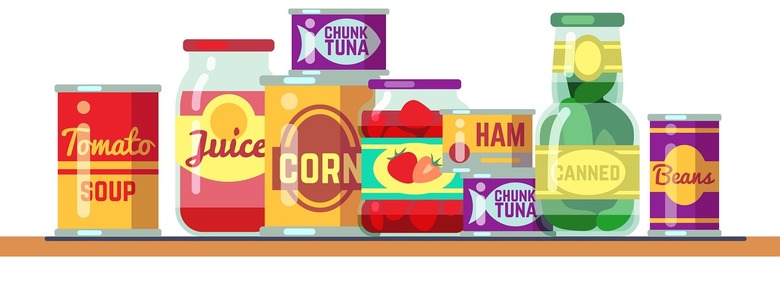There's Nothing Wrong With Canned Food
Some might think that the only time to reach for the canned goods in the grocery store is in preparation for an earthquake or a hurricane. Well, think again, Martha Stewart — your life is about to get a whole lot easier, and cheaper.
If you have limited access to fresh fruit and vegetables, canned goods are a great option — and in some cases, even better for you! For example, corn and tomatoes actually release more antioxidants when heated! Not to mention the fact that most of the "fresh" produce you see at your local grocery store isn't actually fresh at all. Vegetables are at their highest nutritional value when they are first harvested, but once they make their way to most supermarket shelves, they may have already been in storage or transport for weeks — a vegetable morgue at best! — which means they've been gradually losing nutrients. Canned foods, on the other hand, seal in all whatever good vitamins and minerals are present at the time of canning.
One downside of the can is of course its sodium content. But that's nothing a little extra time and attention can't fix: All you need to do is read that really annoying fine print on the label, paying special attention to certain ingredients.
Some of the things you want to stay away from are canned goods with added sugar or those preserved in syrup; the better option would be items canned in juice or water. It's also nutritionally beneficial to choose the fat-free or low-sodium options. If you are concerned about the sodium content, try rinsing canned beans — nobody wants high blood pressure if you can avoid it.
